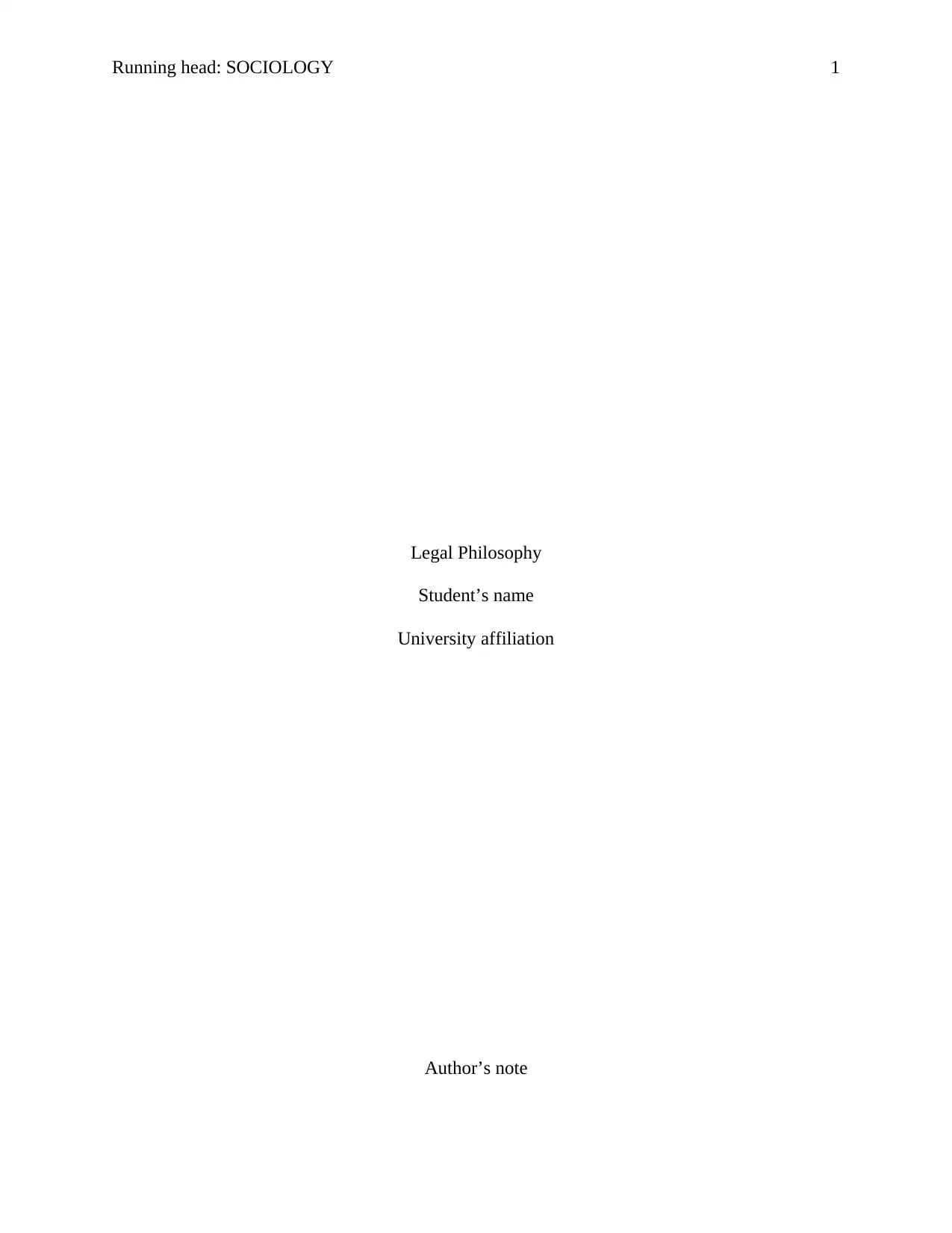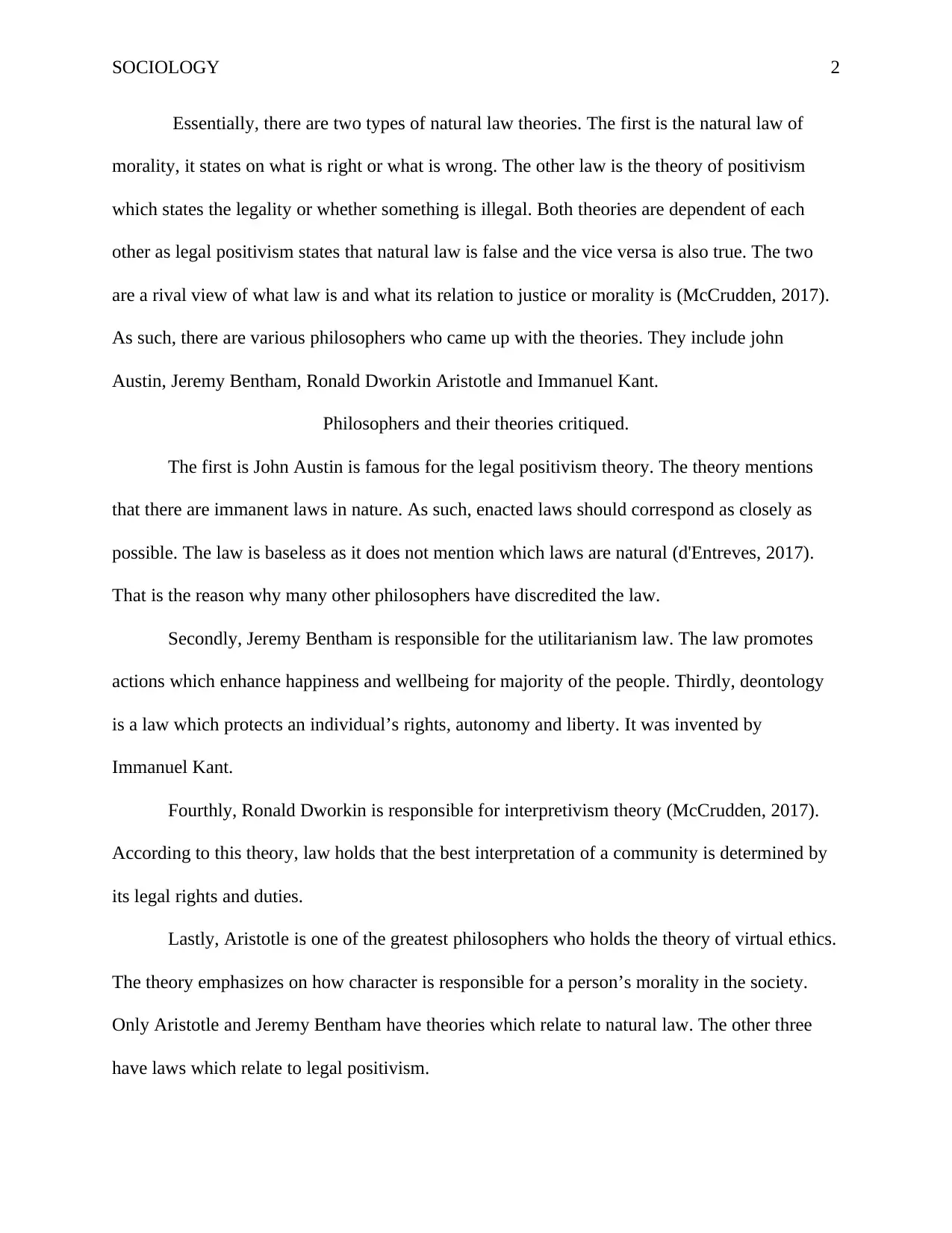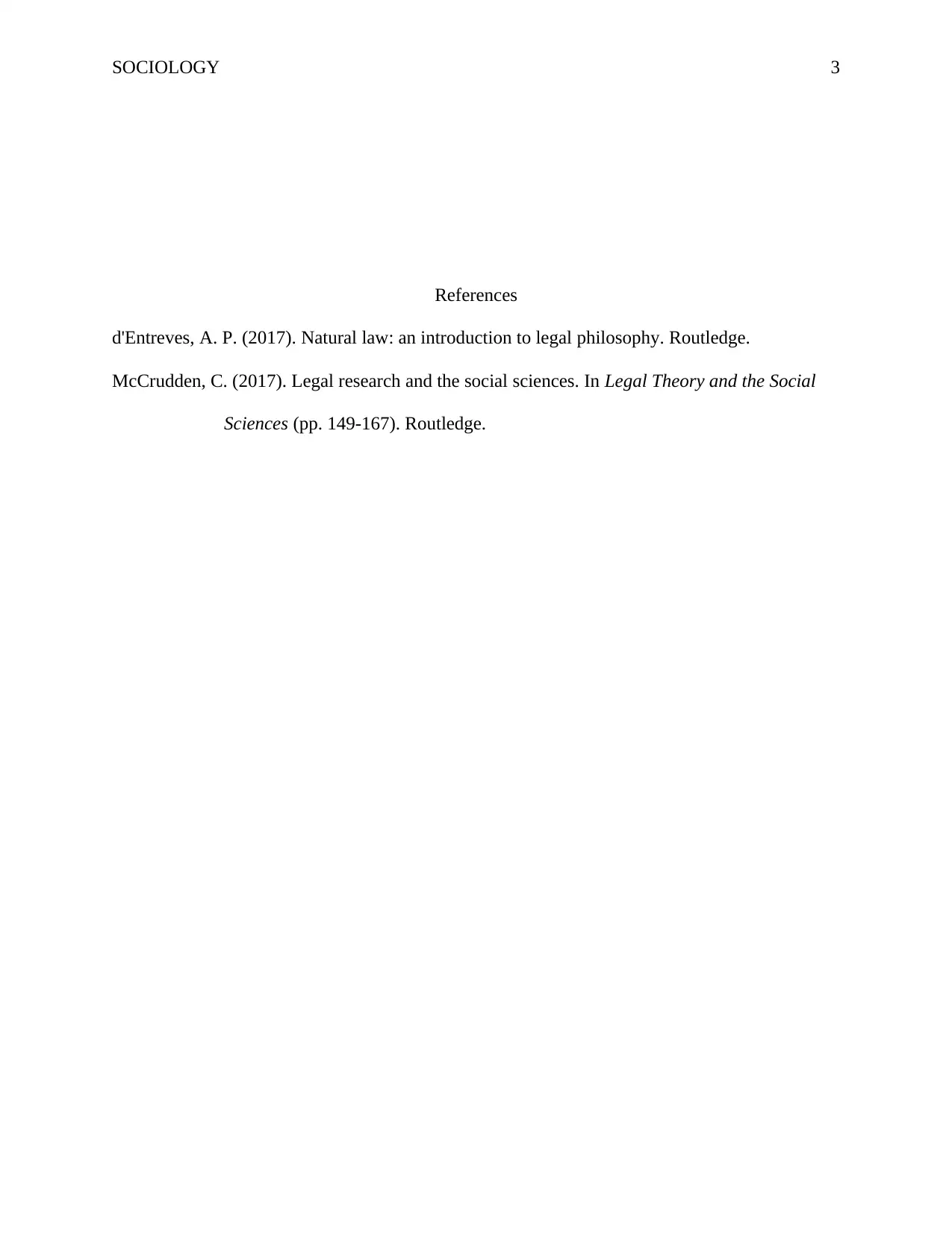Analysis of Natural Law, Legal Positivism, and Philosophical Theories
VerifiedAdded on 2023/01/17
|3
|419
|92
Report
AI Summary
This report delves into the contrasting concepts of natural law and legal positivism within the realm of sociology. It explores the core tenets of each, highlighting their fundamental differences and areas of contention. The report examines key philosophical perspectives, including the theories of John Austin, Jeremy Bentham, Immanuel Kant, Ronald Dworkin, and Aristotle. It analyzes how these philosophers have shaped the understanding of law, morality, and justice. The report provides a comparative analysis of these legal philosophies, discussing their strengths, weaknesses, and implications for society. It also touches upon the relationship between enacted laws and natural law principles, offering a comprehensive overview of the subject. This report is a valuable resource for students seeking to understand the complexities of legal theory and its impact on society.
1 out of 3










![[object Object]](/_next/static/media/star-bottom.7253800d.svg)